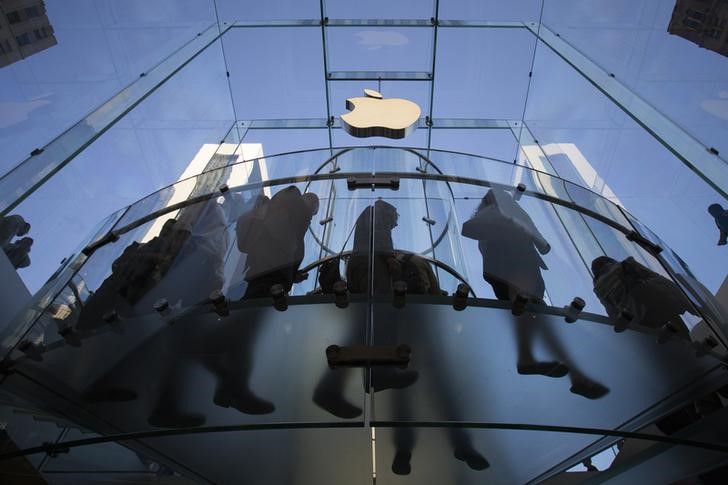This post was originally published on this site
https://i-invdn-com.investing.com/trkd-images/LYNXMPEIB50EI_L.jpg
WASHINGTON (Reuters) – President Joe Biden will visit the Arizona plant of TSMC on Tuesday as the Taiwanese chipmaker is set to more than triple its planned investment in the factory to $40 billion, among the largest foreign investments in U.S. history.
The investment is a big win for Biden after supply-chain issues disrupted the U.S. economy early in his presidency.
Joining Biden for his visit to Taiwan Semiconductor Manufacturing Co Ltd’s facility in Phoenix to promote efforts to boost U.S. technology manufacturing will be Apple (NASDAQ:AAPL) CEO Tim Cook, TSMC founder Morris Chang, and the heads of chipmakers Micron (NASDAQ:MU), Sanjay Mehrotra, and NVIDIA (NASDAQ:NVDA) founder and CEO Jensen Huang, among others, the White House said.
They will attend a “tool-in” ceremony, which is the symbolic moving of the first equipment onto the shop floor of the new $12 billion facility. The plant is scheduled to be operational in 2024.
TSMC is the world’s largest contract chipmaker and a major supplier to major U.S. hardware manufacturers such as Apple and NVIDIA.
“Bringing TSMC’s investment to the United States is a masterstroke and a game-changing development for the industry,” NVIDIA’s Huang said in remarks prepared for Tuesday’s event.
TSMC executives will announce a plan to build a second nearby facility that will produce advanced chips by 2026.
The company will announce its second plant will produce advanced N3 chips by 2026 and that its current facility will develop even more cutting-edge chips than originally proposed, going from N5 down to N4.
TSMC’s investment in Arizona at two facilities will total $40 billion, making it the company’s largest investment outside of Taiwan, and one of the largest foreign direct investments in U.S. history.
Biden has sought to boost production of semiconductors after the pandemic caused supply-chain problems that resulted in shortages of chips for vehicles and many other items.
U.S. semiconductor production now accounts for just 12% of the global total, down from 37% two decades ago, a White House report on supply-chain problems said last year.
Taiwan’s dominant position as a maker of chips used in technology from cell phones and cars to fighter jets has sparked concerns of over-reliance on the island, especially as China ramps up military pressure to assert its sovereignty claims.
China claims Taiwan as its territory despite the strong objections of the democratically elected government in Taipei, which rejects Beijing’s sovereignty claims.
The $52.7 billion “Chips and Science” act, signed by Biden in August, is aimed at preventing a resurgence of supply-chain woes.
“The occasion for the president’s travel is to mark a significant milestone that TSMC is reaching in bringing the most advanced semiconductor manufacturing back to the U.S.,” said Brian Deese, director of the White House National Economic Council.
Biden’s victory in Arizona in the 2020 presidential election helped catapult him to the White House after Republican Donald Trump won the state in 2016.
Biden has said he intends to seek a second four-year term in 2024.

